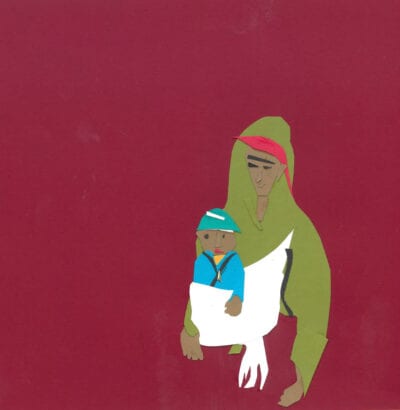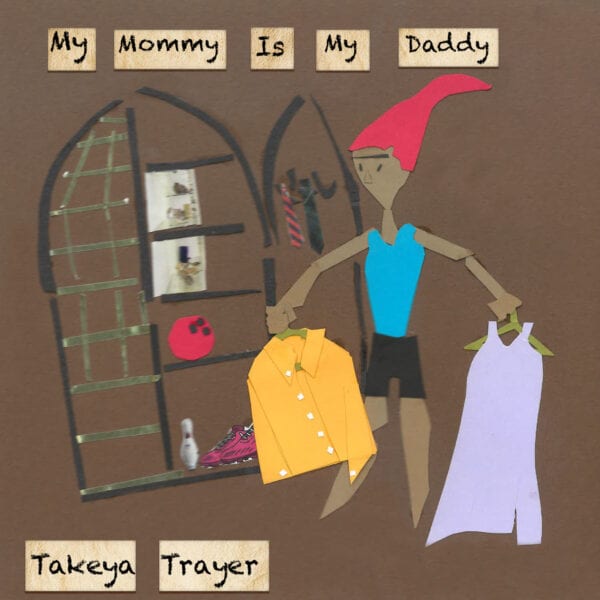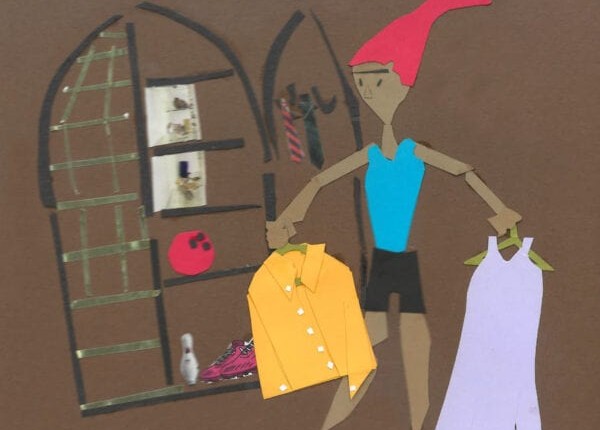By Takeya Trayer
Psychological Evaluation of a Visual
This is the cover image from my book My Mommy is My Daddy, published this year. It is cut paper collage edited in Photoshop.
In the context of the book this image portrays the “mommy” to be a strong masculine of center person who is challenging society’s gender roles. The “mommy” is ambitious and putting aside the dress to “walk with the boys” in goals and career endeavors.
Just as a stand alone image, this visual can elicit many emotions and personal questions.
As a single parent, dressing yourself is the same as giving out your business card to every person that you pass. If the dress is chosen the passerby wonders where the father figure is in the life of the child – they may outwardly ask the question. Many strangers feel empowered to pry in the “duty” of protecting a child they know nothing about.
If the button down shirt is chosen, the passerby wonders where the “mother” is. Now one must defend oneself from the disbelief that you actually “carried the child” from the straight community AND the LGBTQ community. Questions like “aren’t you gay?” arise.
. . .

. . .
If no one knows that you are a parent and you are just casually out for the night, what will you attract? If one is wearing masculine clothing the assumption is they are trying to attract in opposition. The pants want a dress and the dress wants the pants. If you start to converse and then they find out that you’re a parent things get complicated. That image of you being the masculine of center person has been diminished by your natural-born right of childbirth!
So if one is wearing a dress because that’s the mood they were in, they could attract a masculine of center person, possibly even a male. Because of attire there is an image to uphold of the feminine lion. Now one must explain that what is assumed isn’t always the case and for any real connection a whole psychological character breakdown is necessary to ensure the quality of the experience is authentic.
Whew! What a casual evening!
. . .

. . .
In reality this image is about vulnerability and choice. What is the desired outcome? What is the level of patience? Why can’t one just be themselves and wear what is comfortable that day? Why can’t people just mind their business? Why can’t one attract the partner that they want because of gender norms and stereotypes?
Do children still see one as their mother when they are wearing a tie?
Personally, it’s interesting because my children do not ever question it.
. . .
You can explore the work of Takeya Trayer here





